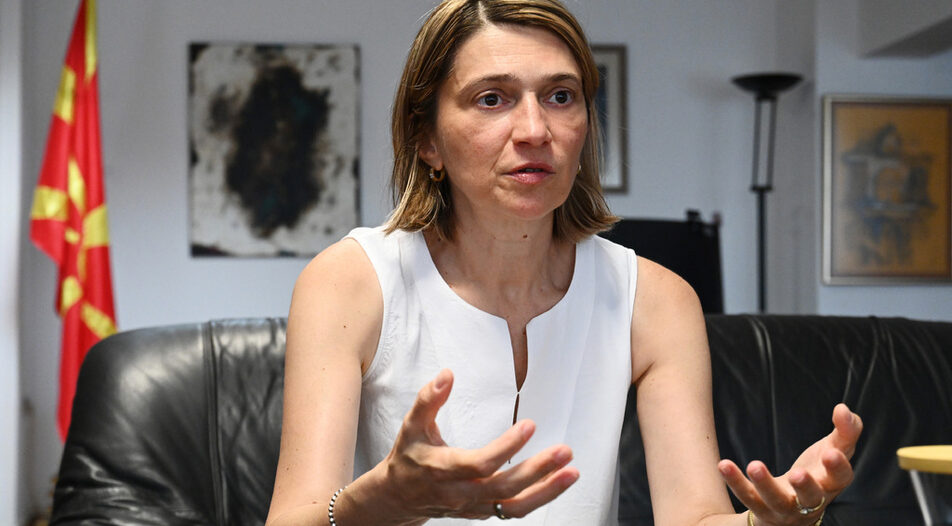On 23 August an informal dinner was held in Athens with sundry official guests. At the gathering at the residence of Greek Prime Minister Kyriakos Mitsotakis, the future of the Western Balkans was discussed in the presence of almost all leaders from the region - North Macedonia, Bulgaria, Croatia, Romania, Kosovo and Bosnia.
The meeting marked 20 years since another gathering on the future of the Balkan region - in 2003 in Thessaloniki. Back then, Bulgaria was absent from the table. Absent from the new meeting was Albania, as Greece is in a diplomatic spat with it over a Greek mayor arrested for corruption.
This, in fact, typifies how the EU's good intentions in the region are clashing with reality. At the first meeting only Greece was an EU member, now Bulgaria, Romania and Croatia are also in. This, alas, does not make the path any easier for the rest.
N. Macedonia, which has had candidate member status since 2005, and Albania, a candidate member since 2014, could find their accession even lags behind countries like Moldova and Ukraine, which only got that status last June (and also attended the dinner).
What's next for Skopje?
The main problem for Skopje is the change of the constitution. On August 18, the parliament had to vote on the inclusion of Bulgarians in the basic law, which is a precondition for starting negotiations with the EU in line with the compromise deal struck by the Kiril Petkov cabinet last summer to unblock the integration process.
However, the Macedonian government failed to push through the changes. According to a Capital weekly interview with Agnes Rusi Popovska, North Macedonia's ambassador to Bulgaria, the changes could be effected by the end of November, but there is no guarantee that they will pass. The opposition in Skopje is using the case to gain political capital.
"If just one envoy from VMRO-DPMNE betrays me and votes for the statute amendments, I will be dragged out of politics," Kristian Mitsoski, leader of the opposition party with 37 members in N. Macedonia's 120-member parliament, said on 23 August.
Thus, the neighboring country is facing the following, classic Balkan, case: according to local media polls, about 80% of citizens are against the inclusion of Bulgarians in the constitution, while at the same time 80% are in favor of EU accession.
How (not) to change a constitution
On July 25, a constitutional committee in the Macedonian parliament proposed the changes, which were a consequence of the so-called French proposal to lift the Bulgarian veto from 2022. It states that Bulgarians will be listed as a minority in the Macedonian constitution, a category in which Turks, Vlachs, Roma, Serbs, Bosniaks, Albanians and Macedonians are already listed. According to the present proposal, Bulgarians, Croats, Montenegrins, Slovenes, Jews and Egyptians should be added to them.
The history of constitutional changes dates back to 2002, when, following the military conflict with the Albanian population, constitutional changes were proposed in what was then FYROM. With the establishment of the "Committee for Peer Relations" or the Committee for Community Relations, the ethnic tensions of the turn of the century gradually subsided. The committee, which officially began operating in 2007, deals with problems and proposes solutions to the government related to the coexistence of the country's different peoples - a sort of public relations committee.
The body is currently composed of 19 members - seven seats each for Albanians and Macedonians and one representative each for Turks, Serbs, Vlachs, Roma and Bosniaks. The new proposal for constitutional changes proposes to expand its membership to 43: all the listed communities, including Bulgarians, would get one representative each, while Albanians and Macedonians would get 16 "to ensure representativeness".
Two questions lie ahead: would this proposal pass - and would it be the last obstacle placed by Sofia (or other EU members, for that matter) on Macedonia's road to membership? Bear in mind that the saga of the ex-Yugoslav country's accession to the European family and NATO has been ongoing for more than 20 years and no sooner has an old hurdle been overcome, a new one has loomed up.
Neighborhood business
After plans for an air link between Sofia and Skopje fell through, hopes are that the rail link between the two capitals, which has been mooted since 1994, can still be built. According to the Macedonian ambassador, the railway infrastructure on the Macedonian side is still under construction, with the link to the border expected to be completed by 2027.However, despite the lack of infrastructure, there is no lack of investment in N. Macedonia from the Bulgarian side. In 2021, investments will reach 244 million euro, an increase of around 100% compared to 10 years earlier. The total investment for the period 2010-2021 is over 1.88 billion euro.
However, there is no such enthusiasm on the other side. In 2021, N. Macedonia has invested around 8 million euro in Bulgaria, with a net exit in 10 years as investments, while preferring destinations such as Russia (around 100 million euro) and Serbia (700 million euro).
On 23 August an informal dinner was held in Athens with sundry official guests. At the gathering at the residence of Greek Prime Minister Kyriakos Mitsotakis, the future of the Western Balkans was discussed in the presence of almost all leaders from the region - North Macedonia, Bulgaria, Croatia, Romania, Kosovo and Bosnia.
The meeting marked 20 years since another gathering on the future of the Balkan region - in 2003 in Thessaloniki. Back then, Bulgaria was absent from the table. Absent from the new meeting was Albania, as Greece is in a diplomatic spat with it over a Greek mayor arrested for corruption.












